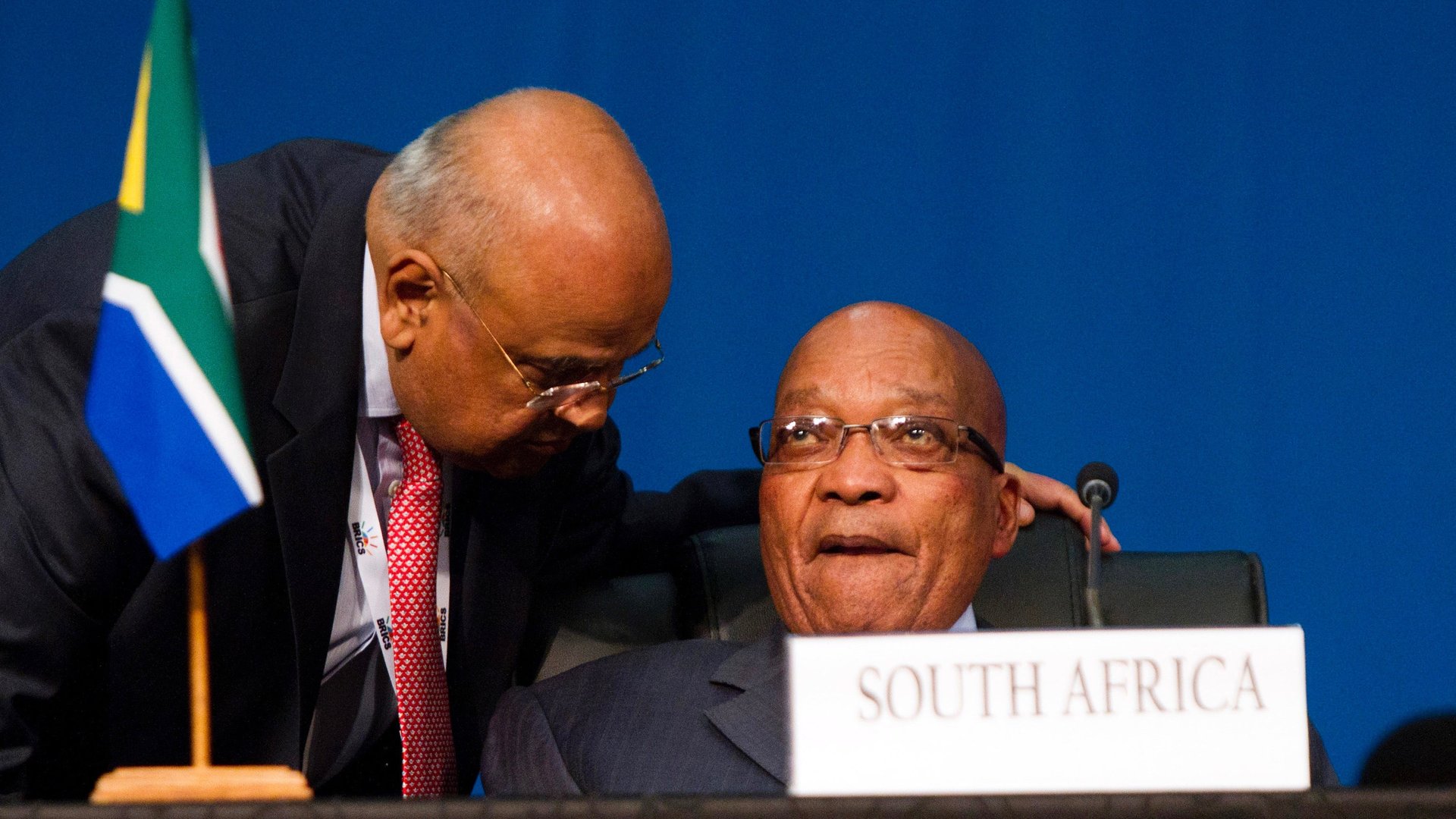A rumor South Africa’s finance minister is wanted by police again is tanking the rand
This story has been updated.


This story has been updated.
South Africa’s currency fell as rumors swirled—once again—of the finance minister’s arrest. When news broke that police summoned Pravin Gordhan the rand fell by 3.1%. As markets opened on Wednesday (Aug. 24) the rand declined a further 1.2% before recovering slightly, according to Bloomberg. Bonds and the banking index also suffered. The political uncertainty eroded recent gains after what has been a difficult year for one of Africa’s largest economies.
According to reports, Gordhan is to “present” himself to the Directorate for Priority Crime Investigation on Thursday (Aug. 25) over allegations of espionage and corruption carried out by a “rogue unit,” while Gordhan was head of the South African Revenue Service nearly a decade ago. Gordhan has since refused to appear before the police, saying he has cooperated with them before and had no legal obligation to meet them.
“I have a job to do in a difficult economic environment and serve South Africa as best I can,” Gordhan said in his statement. “Let me do my job.”
Reports have also since revealed that the police have broadened their investigation to include allegations that Gordhan acted corruptly by granting the early retirement of his deputy at the revenue service, and then hiring him again on contract. Gordhan’s lawyers say the police’s accusations have no legal standing. Police have so far declined to comment. Three other former revenue service executives were also summoned in connection with the investigation.
Gordhan has consistently denied wrongdoing, saying the so-called “rogue unit” was above board and had ministerial approval. This is the third time the police unit, known as the Hawks, have questioned Gordhan. Earlier this year, just days before he was set to deliver a crucial budget speech, the Hawks demanded Gordhan answer written questions. Then in May, rumors of Gordhan’s imminent arrest sent the currency tumbling, just as ratings agencies were assessing South Africa. Gordhan was not arrested then, and went on lead South Africa’s recent economic recovery, assuring international investors of the country’s stability.
Analysts believe Gordhan is the target of president Jacob Zuma and his political allies. The two are reported to be at loggerheads over the management of South Africa’s state-owned enterprises, especially the national carrier South African Airways. Gordhan’s office has delayed bailing out the embattled carrier until a new board is appointed (effectively removing those close to Zuma, according to reports). Gordhan’s office has also curbed spending on plans to build a new nuclear power plant.
Earlier this week, a cabinet briefing announced that Zuma himself would now directly oversee state-owned companies. Analysts say the move allows Zuma to maintain political power and protect his interests after historic losses in this month’s local government elections. Zuma’s office has denied that there is a rift between the president and the finance minister. According to reports, Gordhan is determined to resist pressure to resign.